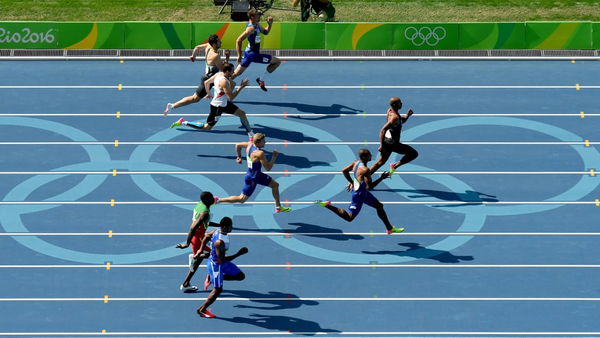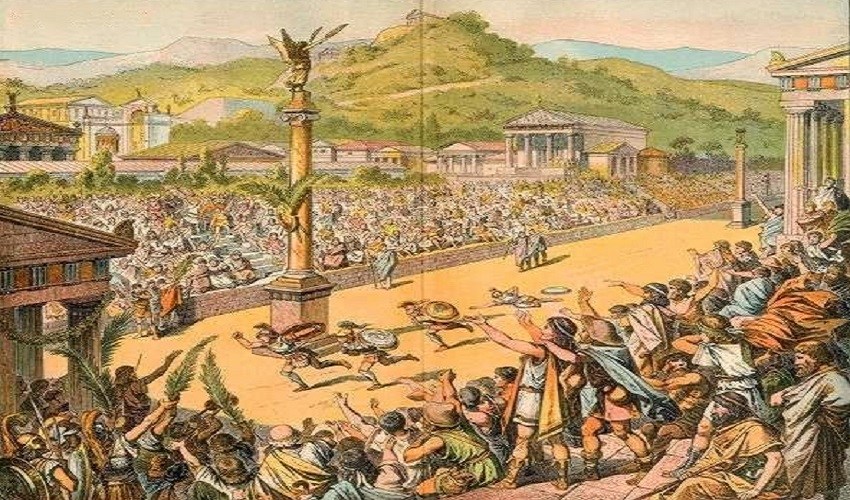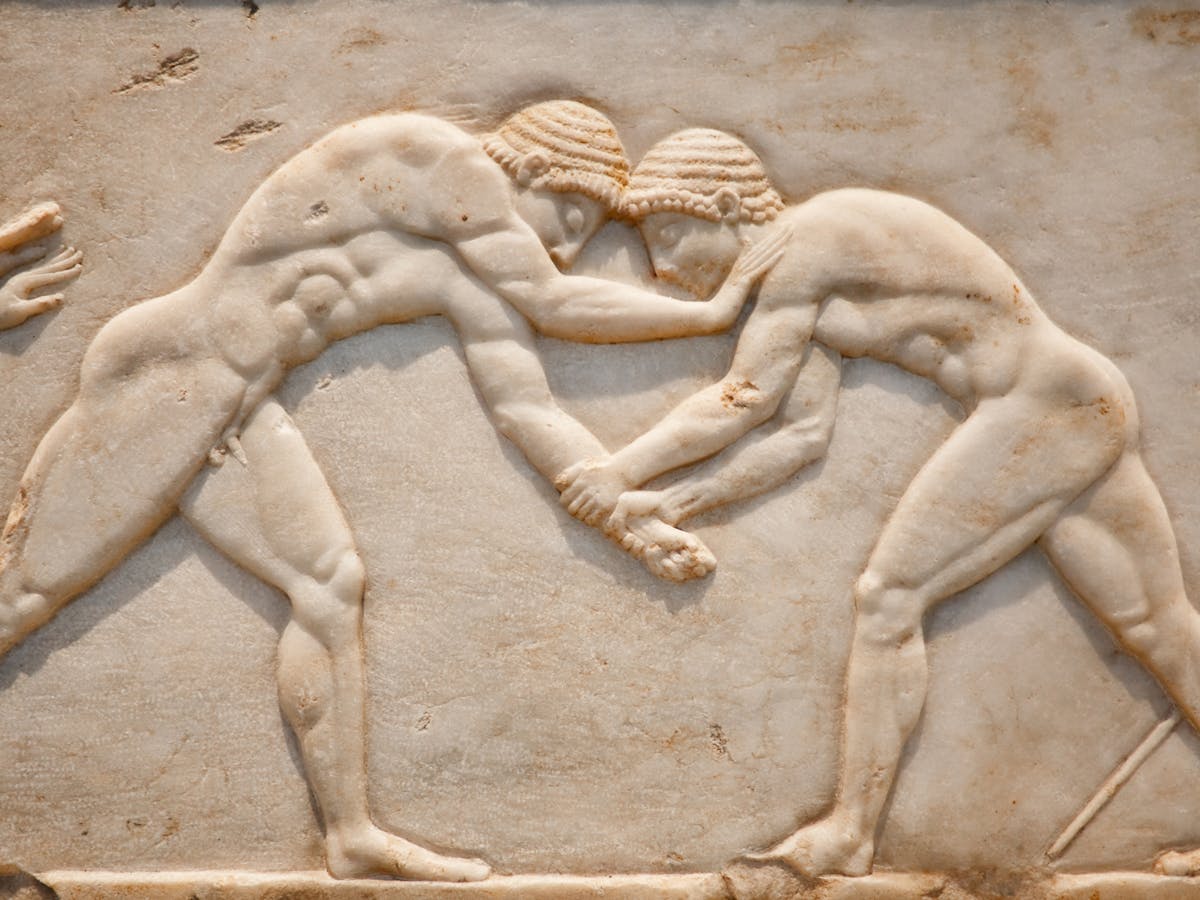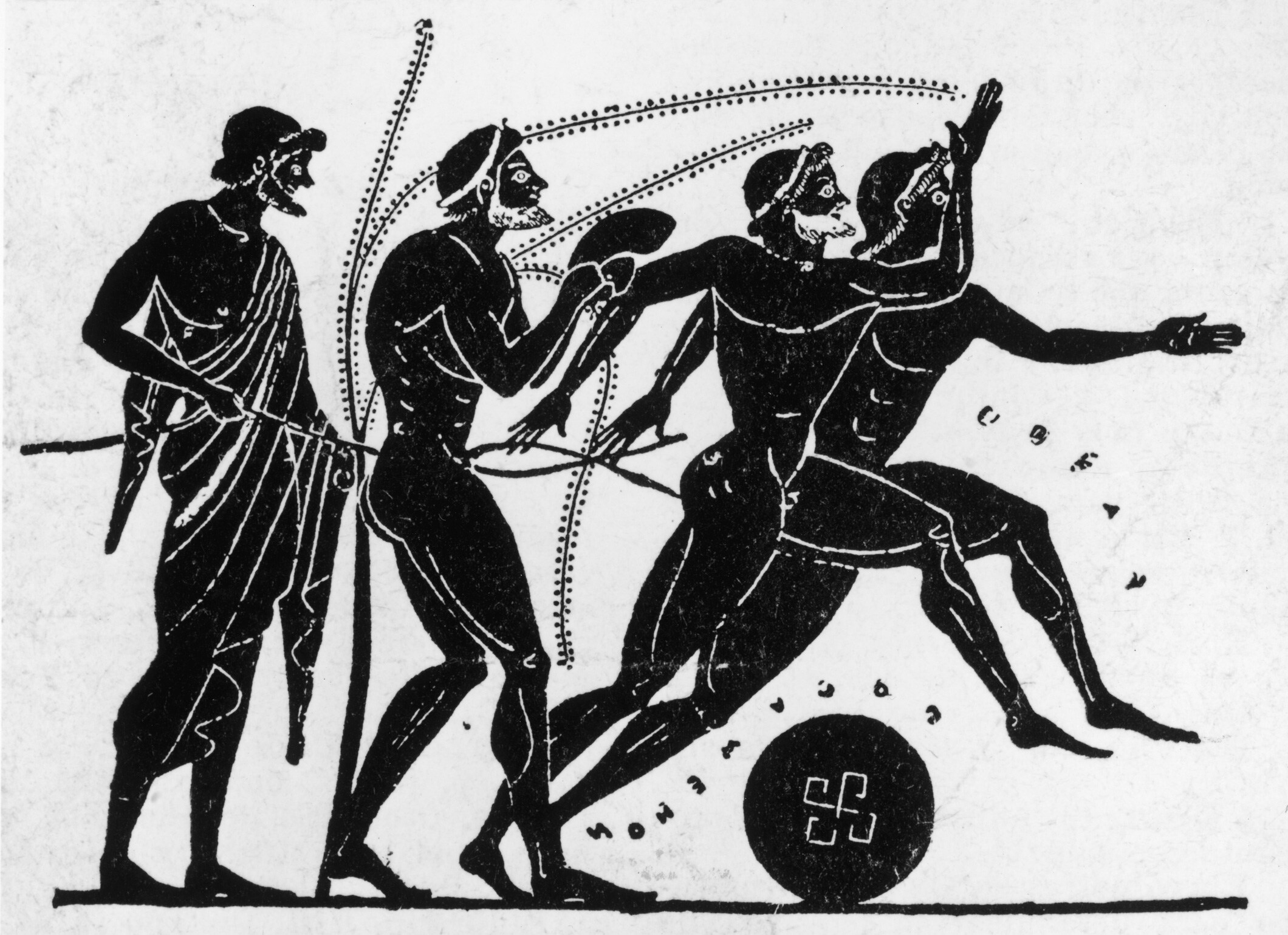

The modern Olympics have been around for over a century now since the nations decide to resume a long-lost tradition. Started by the Greeks over two millennia ago, the ancient Olympic Games were the root of what we see today.
How did this all start? Generally, the competitiveness that comes with human nature included trying to best one’s peer in different activities. The Olympics set out to do the same, and champions from each Greek city-state would assemble at one location in a peaceful gathering to compete in different events.
ADVERTISEMENT
Article continues below this ad

The Olympics were held to please the Greek god Zeus
The original idea was believed to be a tribute to the Greek God Zeus. The competition was held in his honor and the victory would be crowned under his watch. The games were held at the massive field of Olympia and spectators from all over the nation gathered to witness it.
According to popular mythology, the legendary greek demi-god Hercules hosted the first edition of these games to impress his father Zeus. Aristotle gives an account that the first-ever Olympic Games were held in 776 B.C. Although, it is safe to assume that such events did take place far before that, but not at the magnitude of the Olympics.

As the years passed, the Olympics grew in popularity and became one of the most famous greek festivals. During the time o the games, all wars between city-states within Greek territory were temporarily paused for the safe passage of athletes.
Athletic events began increasing in number over the decades
The Olympics signified a peaceful gathering, and the wreath crowned on the winners of each event became the very symbol of peace. The game began with just one race which was considered the test for the best athlete. However, different events started being accommodated such as Spear throwing and long-distance runs.

The event lost its luster gradually as the roman empire settled into Greece. In fact, the notorious Emperor Nero crowned himself the winner of the chariot racing event despite falling of his own chariot during the race.
Read more: Women’s Runner Allyson Felix Creates History Ahead of Tokyo Olympics 2021
ADVERTISEMENT
Article continues below this ad
The last recorded edition of these games was held in 393 AD under emperor Theodosius I, after which they were banned. The decline of Greek civilization, the crumbling of the roman empire under barbarian invasions combined with natural calamities such as floods and earthquakes caused the Olympics games to fade into history.

ADVERTISEMENT
Article continues below this ad
However, the athletic events introduced continued throughout the ages in other forms. Sprints, marathons, hammer throws, Javelin Throws, and other such contests now hold a place in the modern Olympics. Athletics are more aptly distinguished into Track and Field sports, in which athletes from all over the world participate to determine who the best is.
ADVERTISEMENT
ADVERTISEMENT
ADVERTISEMENT
ADVERTISEMENT

